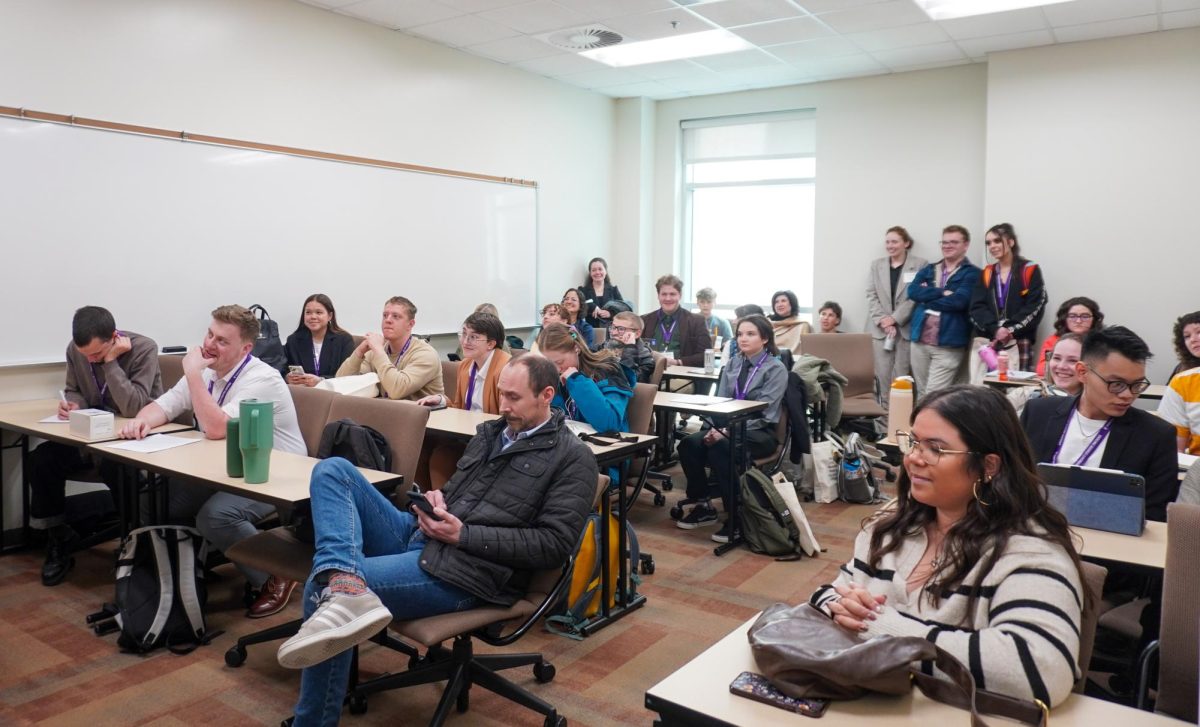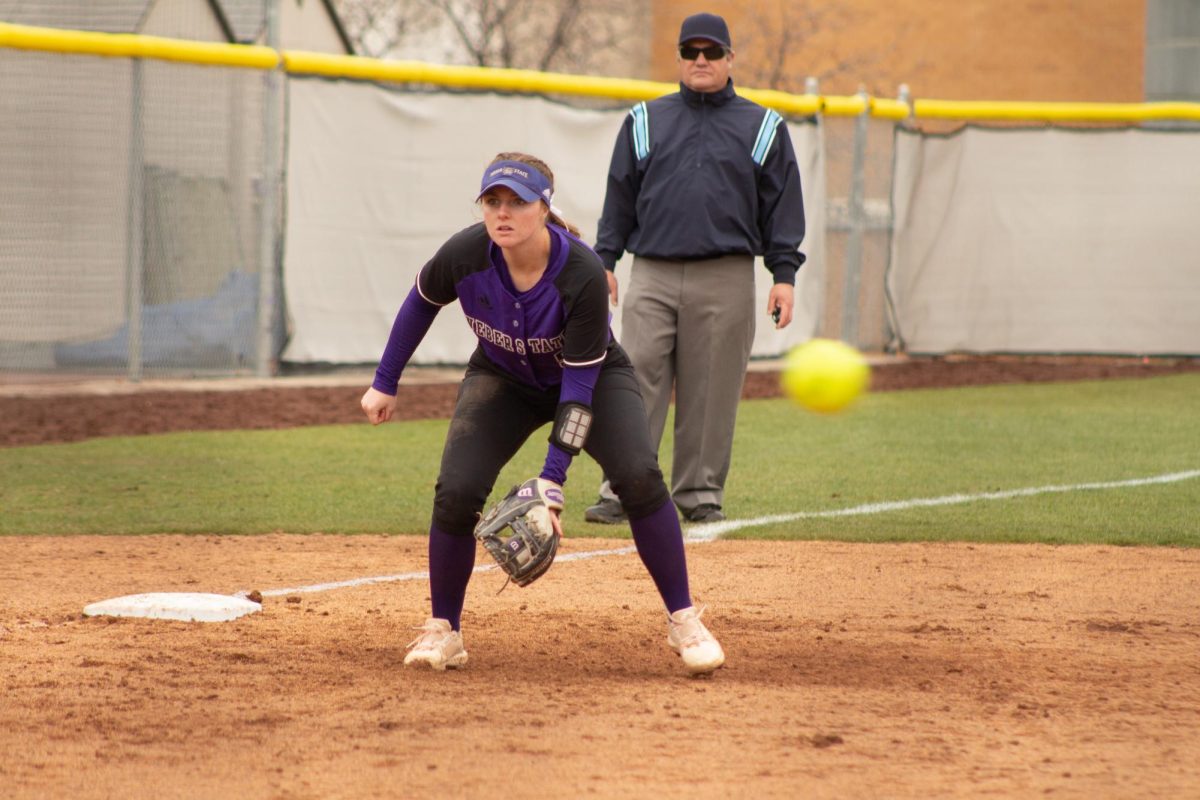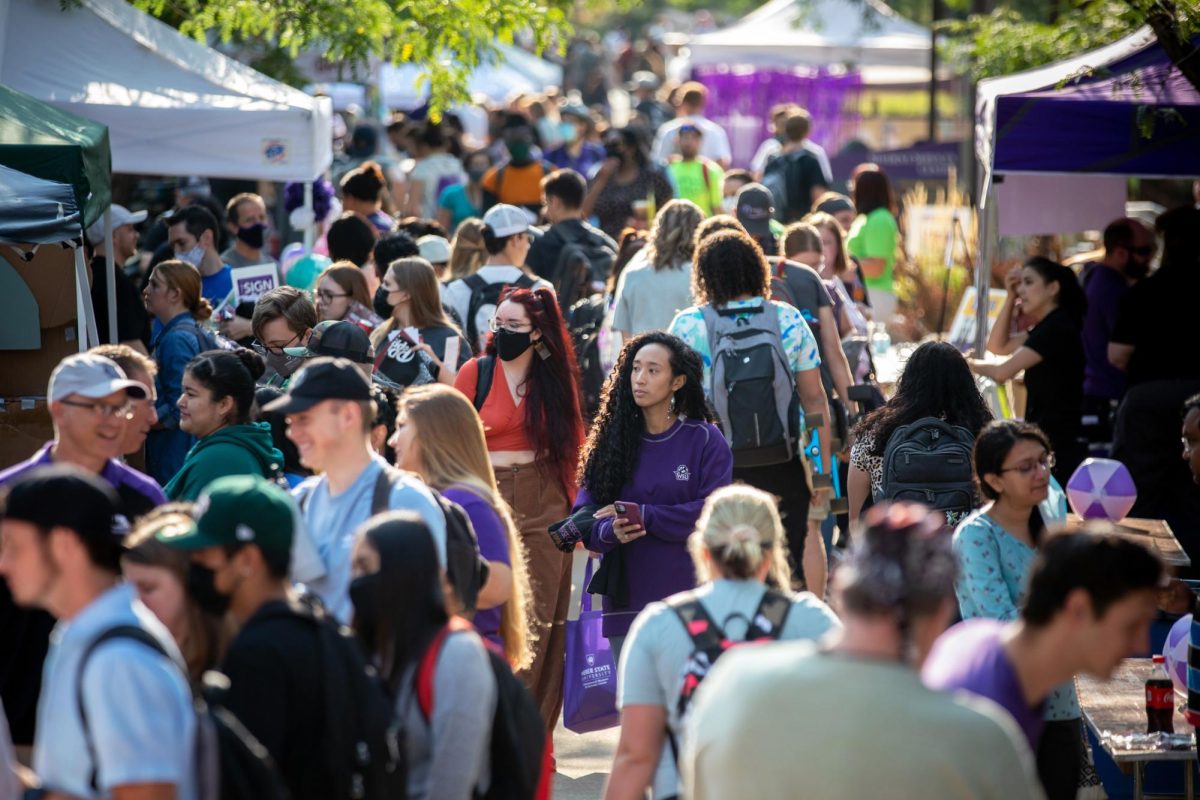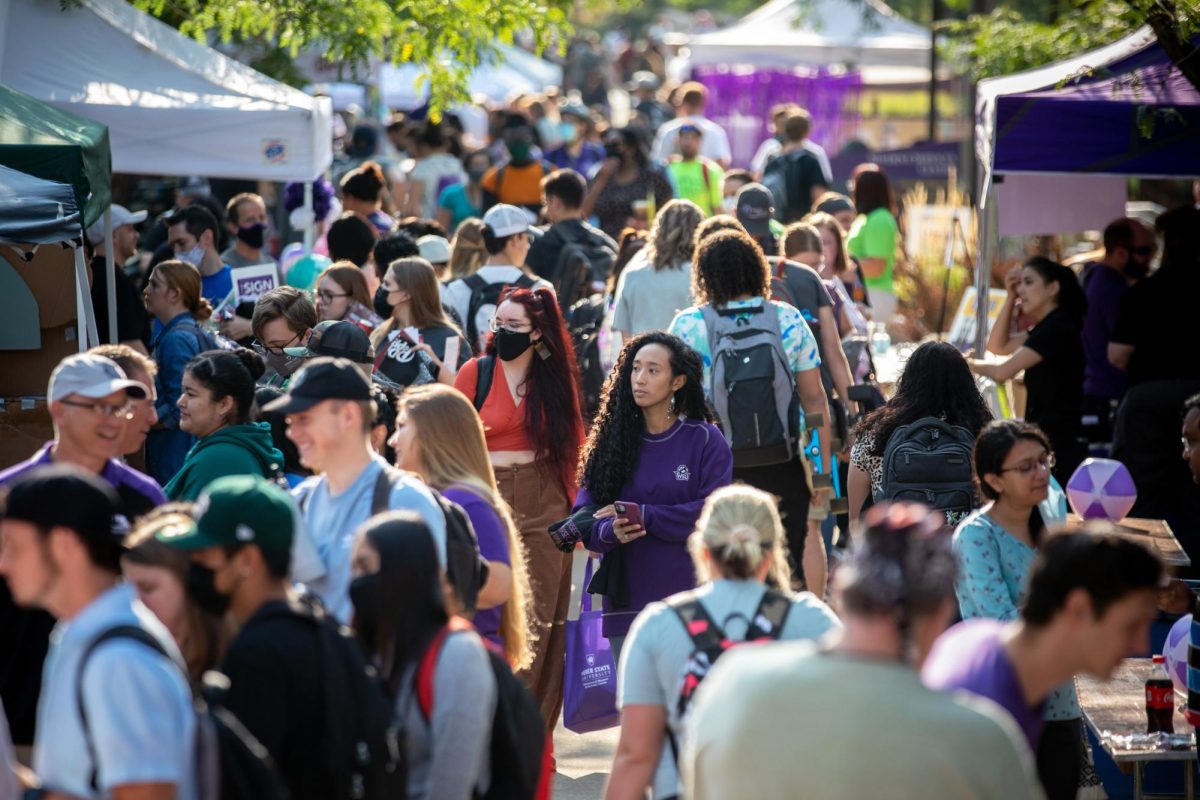Since 2000, 42 percent of adult homicides in Utah are domestic-violence related, and every year, 80 children across Utah witness the murder or attempted murder of their mother, according to the Utah Domestic Violence Coalition.
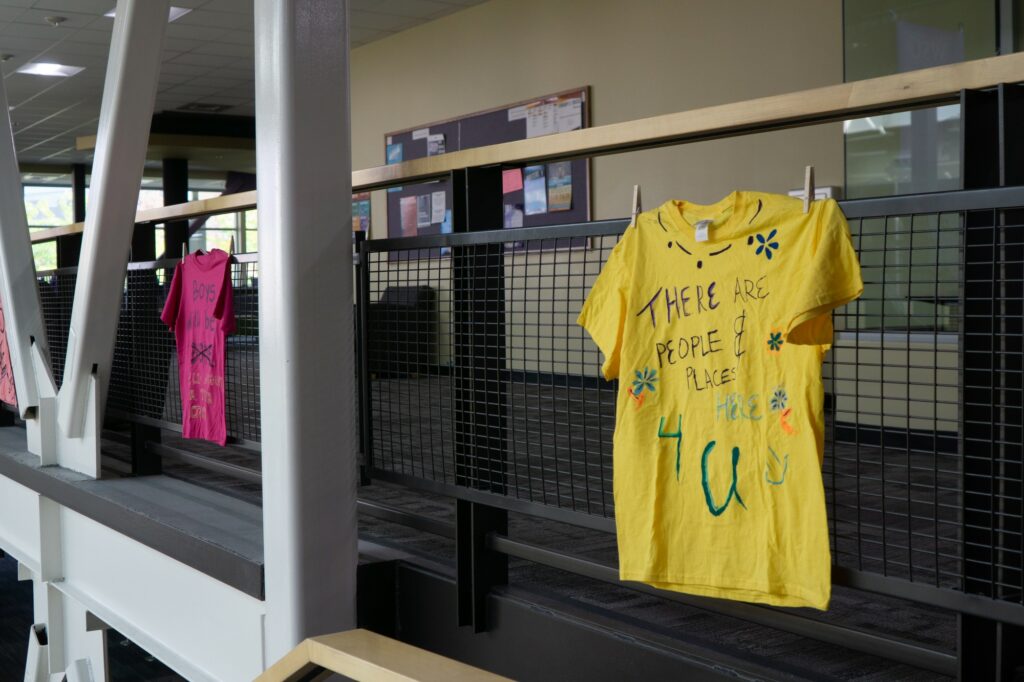
October is domestic violence awareness month, and, according to WSU’s Women’s Center Program Coordinator Alex Dutro-Maeda, it’s now more important than ever to bring awareness to domestic violence.
“Domestic violence is a real problem, especially during the pandemic. A lot of people are quarantined or locked down in spaces that aren’t safe for them,” Dutro-Maeda said. “As much as we want our homes to be a safe haven, for a lot of folks that just isn’t the case.”
Throughout the rest of the month, the Women’s Center will host virtual events such as Boo’d Up, in which participants will learn about beginning relationships, boundaries and consent; LunaFest, which is an annual film festival that showcases films by, for and about women, proceeds of which will be given to the Safe@Weber Survivor Emergency Fund; a training event to learn about supporting survivors and a Sister Circle discussing healing and organization.
The “Clothesline Project,” an exhibit of T-shirts made by or in honor of domestic violence survivors, will be on display from Oct. 5-30 in the Shepherd Union Atrium.
The Weber-Morgan County Domestic Violence Coalition will also host a virtual event this month featuring community advocates placing purple flags and sharing a moment of silence for victims.
Despite social distancing, Dutro-Maeda said the Women’s Center still has all of their advocacy services available in-person and virtually.
“Our advocate is available to make appointments, and can continue to offer support, safety planning, help with reporting and help with any legal processes,” Dutro-Maeda said.
Dutro-Maeda said topics like boundaries, consent and healthy relationship behavior can often be taboo or hard to talk about because people sometimes don’t want to admit they might have unhealthy behaviors or patterns.
Paige Davies, the Women’s Center director, said that this can be especially hard in Utah.
“We have a huge emphasis on family in this state, which is great, and sometimes that emphasis can really make it hard for people who are struggling at home to feel confident in reaching out for help,” Davies said.
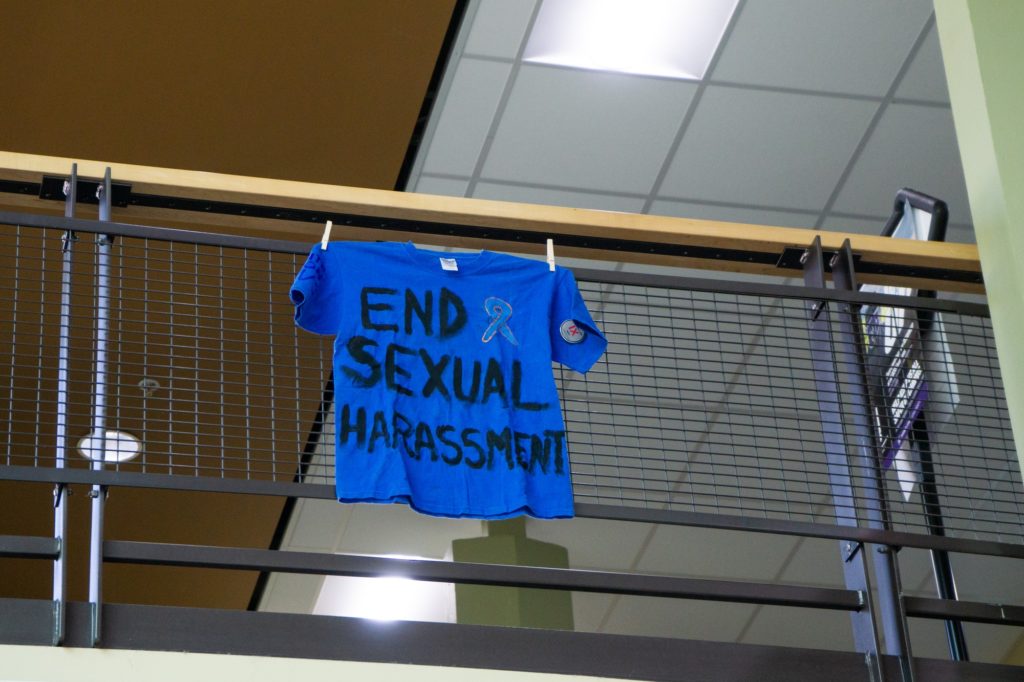
Dutro-Maeda said victims of domestic violence often face shame, stigmas and fear that they will not be believed, or that people will think what they’re going through isn’t important, or even that it might be considered normal when it’s not. Therefore, the center stresses the importance of learning, openly showing compassion, believing survivors of domestic violence and being available as a safe person victims can turn to for support.
“This is still a very big problem, and it’s something that we still need to be combating and shedding light on,” Dutro-Maeda said. “I hope people can attend our virtual events, show support for survivors and continue to learn about this problem that we face.”
The Women’s Center at Weber State, established in 1980, is a resource for students, faculty and staff that focuses on violence prevention education and services for survivors of domestic or dating violence, sexual assault, harassment and stalking.
If you or someone you know needs help, call the National Domestic Violence Hotline at 800-799-7233.














